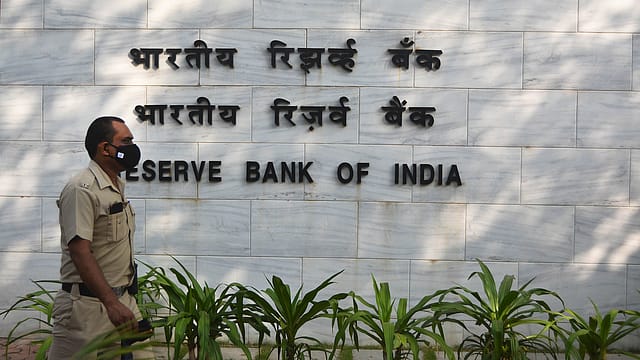RBI directs NBFCs to return 100% cash deposit in case of emergency, tightens HFC rules
ADVERTISEMENT

Non-banking financial companies (NBFCs) will have to return 100% of a depositor's funds within the first three months if an emergency withdrawal is requested, as per the Reserve Bank of India's (RBI) new regulations unveiled on Monday. This rule, effective from January 1, 2025, specifies that no interest will be paid on such premature withdrawals.
The determination of whether a withdrawal request qualifies as an emergency will be guided by the definition of "critical illness" provided by the Insurance Regulatory and Development Authority of India (IRDAI). The central bank clarified that in cases of critical illness, the entire principal deposit may be withdrawn prematurely upon the depositor's request, without interest, before the three-month period has elapsed, the apex bank states.
Emergent expenses that may justify such withdrawals include medical emergencies or costs arising from natural calamities or disasters recognised by the government. If the withdrawal is not due to an emergency, NBFCs may allow a premature withdrawal of up to 50% of the deposit within the first three months, also without interest. However, this amount is capped at 50% of the principal or ₹5 lakh, whichever is lower, it adds.
January 2026
Netflix, which has been in India for a decade, has successfully struck a balance between high-class premium content and pricing that attracts a range of customers. Find out how the U.S. streaming giant evolved in India, plus an exclusive interview with CEO Ted Sarandos. Also read about the Best Investments for 2026, and how rising growth and easing inflation will come in handy for finance minister Nirmala Sitharaman as she prepares Budget 2026.
The central bank also mandated that NBFCs must notify depositors about upcoming maturities 14 days in advance, a change from the current requirement of two months' notice. Additionally, NBFCs must ensure that an information system audit is conducted by their audit committees as per regulations.
To harmonise regulations between housing finance companies (HFCs) and NBFCs, the central bank announced changes including an increase in the minimum percentage of liquid assets for deposit-taking HFCs from 13% to 15% of public deposits. HFCs must also maintain full asset coverage for public deposits at all times and obtain an 'minimum investment grade' credit rating from a recognised agency at least once a year. Failure to secure this rating will prevent HFCs from renewing or accepting new deposits.
“Currently, HFCs are allowed to accept or renew public deposits repayable after a period of twelve months or more but not later than one hundred and twenty months from the date of acceptance or renewal of such deposits,” the RBI adds.
Restrictions have also been imposed on HFCs with branches or agents outside their registered state, barring them from accepting or renewing deposits in these locations unless specific conditions are met. The central bank also extended restrictions on investments in unquoted shares, previously applicable to NBFCs, to HFCs, requiring them to set board-approved internal limits for such investments in companies that are neither subsidiaries nor part of the same group.
“Such Board-approved internal limit shall form part of overall limits and sub-limits for exposure to capital market for deposit taking HFCs,” the apex bank adds.
